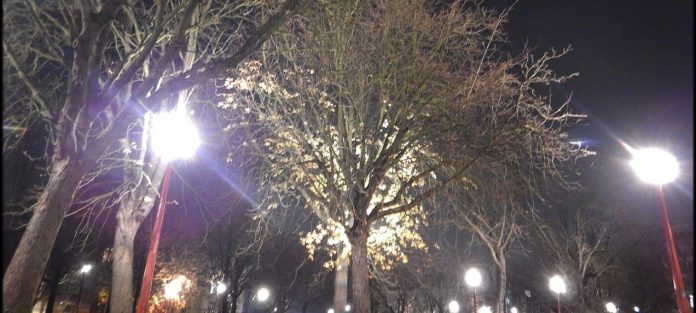For hundreds of millions of years, the web of life on land has been dependent on, and determined by, day and night, light and dark. Photosynthesis, the process by which plants grow, depends on light and dark. And all animals depend on plants for their survival.
One of the less frequently reported impacts of human activity on the environment is the presence of artificial light. Lighting disrupts photosynthesis and the activities of insects, birds and other animals.
A recent study, Light pollution is a driver of insect declines, says habitat loss, pesticide use, invasive species and climate change have all played a role in insect declines globally, but that artificial light at night is another important—but often overlooked—cause.
The light affects insect movement, foraging, reproduction and predation, says the study which, however, suggests that insect biodiversity loss can be mitigated with better informed lighting practices.
“Artificial light at night is unique among anthropogenic habitat disturbances in that it is fairly easy to ameliorate and leaves behind no residual effects. Greater recognition of the ways in which [artificial light at night] affects insects can help conservationists reduce or eliminate one of the major drivers of insect declines,” it says. Read more>>



